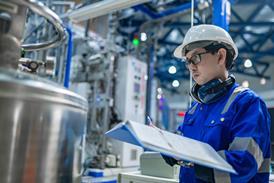Figures released by the Chemical Industries Association (CIA) indicate sustained growth for Q2 2024, building on the positive performance seen in the first three months of the year. This marks a significant recovery following 18 months of severe decline.
Challenges remain for the sector including the cost of energy and the price of raw materials, both of which are up to four times more expensive than competitor countries.
Steve Elliott, the Association’s Chief Executive, commented:
“The fact we now have roughly half of our companies reporting higher sales, exports and production levels is good news. Capacity utilisation is increasing for 40% of respondents to our latest business survey. Optimism for the next three months and for the year ahead is also strengthening with sales expected to continue increasing by 60% of respondents. The Government’s commitment to a new industrial strategy is very welcome news and urgent progress is needed here to sustain this growth and give businesses the confidence to invest for the longer term”.
He added, “Geo-political tensions also continue to affect our sector. We want to work with Government and other stakeholders to find a way of growth continuing despite these events and ensuring strong supply chains”.
Economist Michela Borra added:
“Official Government figures show that chemical input prices are 7.3% higher than output prices. This continues to put a strain on margins which are in a tough place after 18 months of contracting sales for the sector”.
NOTES TO EDITOR:
For any further information please contact Simon Marsh at MarshS@cia.org.uk, 07951 389197 or Diana Tamayo at TamayoD@cia.org.uk, 07885 831615.
- Businesses who make chemical products and solutions are integral to something like 96% of all manufactured goods. Whether it is ingredients for food and medicines; paints and coatings for cars and planes or materials for mobile phones and electric vehicle batteries, the chemical industry is truly the “industry of industries” – also playing a critical role in the nation’s response to Covid-19 through its supply of hand sanitiser, PPE and vaccine ingredients.
- The Association’s manifesto sets out a series of offers and asks for the Government
- Our survey was conducted between 24 June and 5 July. 52 companies of all sizes from across the UK responded.
- Chemical businesses are located throughout the UK, with many of them clustered together in the North East of England, North West of England and Central Scotland. These factories and laboratories, operated by a highly trained and skilled workforce, make a significant contribution towards the UK’s productivity performance.
- Roughly 140 thousand people are employed in the sector and nearly half a million have roles that are dependent on the sector. Chemical workers typically earn around 21% more than other manufacturing industries and almost 27% more than the average worker.
- From Runcorn to the Humber Bank; from Teesside to Grangemouth, chemical businesses and their employees right across the country are essential to the Government’s levelling-up agenda.
- We are the country’s second biggest manufacturing exporters, sending goods to the value of more than £60 billion to other countries. The EU represents our most important market, but we continue to work closely with Government to inform and secure UK trade deals with other key chemical markets such as India and the USA.

















